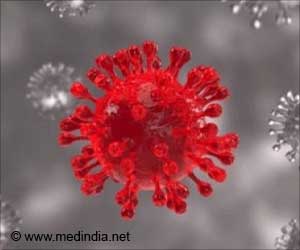without a higher risk of death than non-drinkers.
The conclusions are based on a study of 107 studies involving over 4.8 million participants.
Nonetheless, the review authors state that the included studies had numerous faults and that they would still advise that moderate amounts of alcohol pose minor risks for grave diseases such as cancer.
Assessment of Different Types of Drinkers
Researchers compared the odds of dying among non-drinkers in the studies to the odds of dying for drinkers with low, medium, high, or were very high alcohol consumption.
Advertisement
Women who drank moderately, or in the low alcohol consumption group, had no significant increase in their risk of death when compared to female non-drinkers.
These women drank less than 25 grams of alcohol a day – approximately three units in the UK, which is the equivalent of one large glass of wine, or three small measures of gin.
Men were not significantly more likely to die than non-drinkers if they drank a low or medium amount.
This included men who drank less than 45 grams of alcohol a day – about five-and-a-half units a day in the UK, which works out as about three 330ml bottles of lager a day on average, or not too far off two large glasses of wine.
Flaws in the Studies
Researchers say the results should not be used for safe drinking guidelines, because of the study’s flaws.
In 86 of the studies looked at, non-drinkers included former drinkers, who may have stopped drinking because it had already led to health issues, which is likely to have skewed the results.
Drinkers may also wrongly appear as healthy as non-drinkers because some of those non-drinkers are in fact unwell, which is why they don’t consume alcohol.
The review, published in the journal JAMA Network Open, found the risk of an early death did become significantly higher past a certain threshold of alcohol, which was lower for women than men.
Threshold of Alcohol for Men and Women
For men drinking 45 to 64 grams of alcohol, which is up to eight units a day, or four pints of low-strength beer, the risk of early death was found to be 15% higher than for non-drinkers.
The risk of early death was 21% higher for women drinking 25 to 44 grams of alcohol a day, which means the equivalent of more than one large glass of wine.
“This review was set up to look at flaws in studies and how they bias estimates of alcohol’s health risks. For example, over 80% of the studies in the review counted people who gave up alcohol due to ill health as abstainers. Compensating for these types of mistakes greatly reduced the appearance of health benefits from moderate drinking. Stronger studies are needed to determine the exact levels of drinking at which men and women are at an increased risk of premature death,” said study co-author Dr. Tim Stockwell, former director of the Canadian Institute for Substance Use Research.
A spokesperson for the International Alliance for Responsible Drinking, made up of major alcohol firms including Heineken and Diageo, said: “These findings are consistent with the wider evidence base which tends to show that moderate consumption of alcohol may be associated with certain health benefits for some adults, including a protective effect against cardiovascular disease and diabetes. We do not recommend that anyone drink alcohol for its potential health benefits. Those with specific questions about their own drinking are encouraged to consult their healthcare professionals. Together, they can determine what is best, and for some people, the better choice may be to not drink at all.”
Reference :
- Association Between Daily Alcohol Intake and Risk of All-Cause Mortality A Systematic Review and Meta-analyses – (https:jamanetwork.com/journals/jamanetworkopen/fullarticle/2802963)
Source: Medindia



